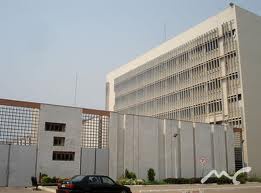
The Bank of Ghana (BoG) has stated that money laundering and terrorist financing have become a herculean challenge in the country’s economy, particularly in the banking sector.
Daniel Ohene Kweku Owusu, Assistant Director at the Supervision Department of BoG, made the observation at the launching of the 30th Anniversary of Lower Pra Rural Bank in Shama, at the weekend.
He said rural and community banks may be attractive to perpetrators of money laundering and terrorist financing menace due to perceived relatively weak internal control systems.
To curb this negative trend in the banking sector, he said, the BoG and Financial Intelligence Centre had issued guidelines to assist licensed financial institutions in designing and implementing their respective AML/CFT compliance programmes.
This, he said, was to ensure an improved monitoring surveillance regime to help minimize, detect and respond effectively to the threat of money laundering and terrorist financing.
He said, as a result, it was imperative for all relevant institutions, including rural and community banks to strictly implement the requirement of the guidelines to ensure effective fight against money laundering and terrorist financing.
Mr. Owusu urged the management, board and staff of the bank to place a high premium on good corporate governance and risk management.
He admonished them to forge a committed and united front, and rededicate themselves towards the objective of taking the bank to greater heights.
The Assistant Director of the BoG noted that the computerization drive embarked upon by rural and community banks had impacted positively on the competitiveness of rural banks in the banking industry.
However, he indicated that it came with additional risks and new challenges, which could increase operational risks if not well managed.
To minimize the risk introduced by computerisation, Mr. Owusu stated that rural banks should put in place appropriate Information Technology security policies as well as adequate Disaster Recovery Plans to protect assets of the bank.
He noted that rural banks in the country had increased to 139 that had revolutionalised many micro and small-scale businesses and as development agent, provided credits, vital financial intermediation and other quality banking service, which had sustained and helped businesses to expand.
Mr Owusu said the Lower Pra Rural Bank had for the past 30 years played its part in the economies of its catchment area.
He said it was worthy of note that the bank’s paid-up capital stood at GH¢1.39 million as at the end of June 2013, which far exceeds the statutory minimum capital base requirement currently pegged at GH¢300,000 for rural banks, he noted.
Mr. Owusu said the solid capital base of the bank provided a source of strength to meaningfully manage risks and reasonably stay solvent since it provided adequate cushion for unanticipated risks.
In addition to the capital base attained, the bank’s mobilized deposits stood at GH¢40.21 million, an increase of 7.92%, whilst credit granted amounted to GH¢23.68 million, inching up by 24.83% for the first half of the year, he revealed.
Mr. Owusu commended the bank for the impressive achievements over the period and entreated them not to rest on their oars but strive hard to achieve more laurels in the industry.
The Chairman of the Board of Directors of the bank, Mr. Nathaniel Arthur, said the bank was established on August 13, 1983, and had chalked great successes with 13 agencies and three mobilization centres.
It had provided credit facility to peasant farmers, fishermen and other stakeholders in its catchment area to expand their businesses.
It had also provided alternative livelihood programmes for vulnerable women in the area to be financially self-independent, as well as offered scholarships, health and educational facilities and stationery to students as part of its Corporate Social Responsibility programme.
Some activities lined up for the 30th Anniversary included fun games, quiz competition, regatta, draft, radio talk show, playing of cards among others.